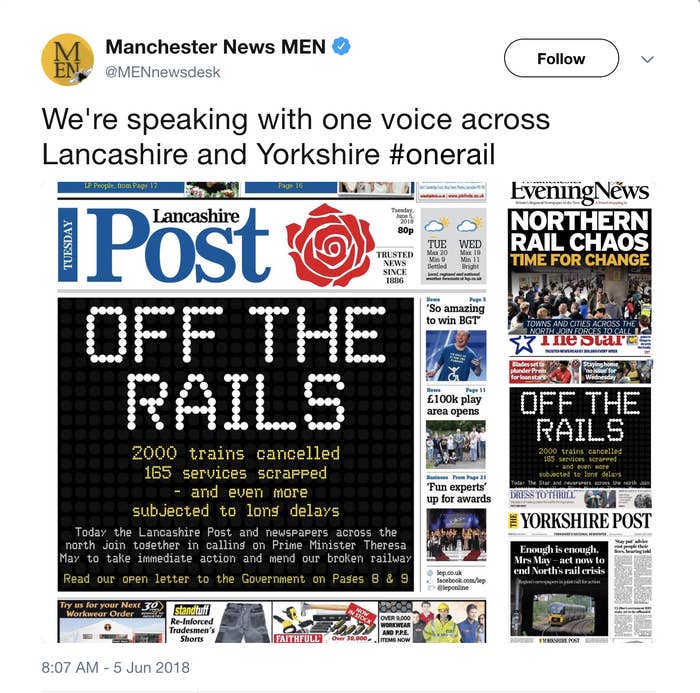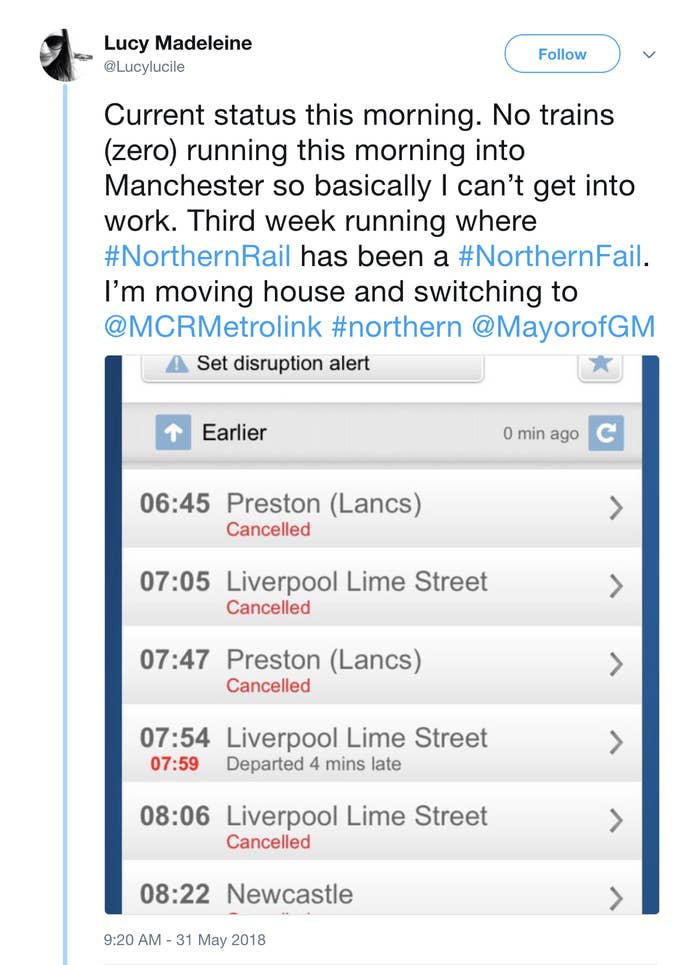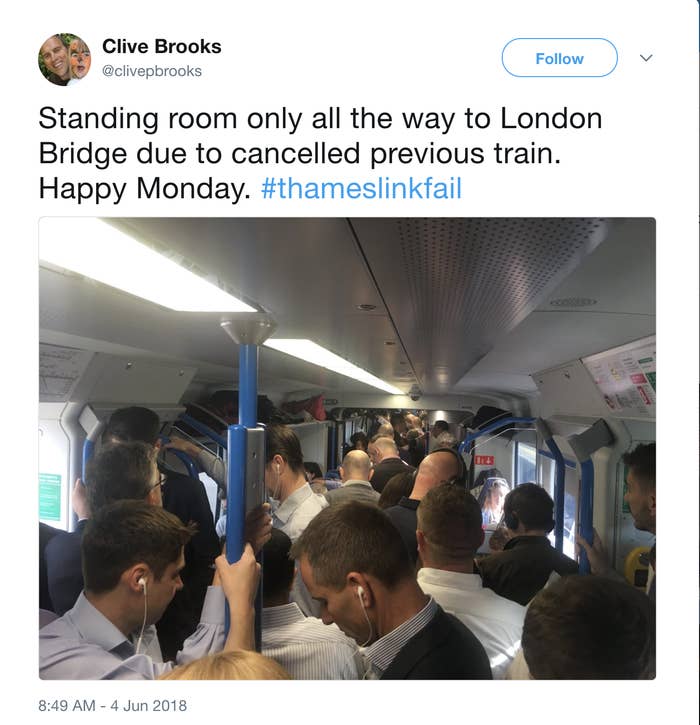Newspapers across northern England joined forces on Tuesday to demand that the government sort out the broken railway system once and for all.

Train operator Northern has cancelled more than 2,000 services since new timetables were introduced on 20 May, with many more trains delayed.

And it's not just Northern. Passengers on Govia Thameslink Railway (GTR) – which runs Southern, Thameslink, Great Northern, and Gatwick Express – have also suffered big problems since new timetables came into play.

Britain's rail timetable is updated twice a year – in May and December – but this latest version had far more changes than normal.
That's because there is a new effort to improve punctuality – with trains being allowed to wait longer at stations because there are more passengers to pick up – and a big investment drive has meant, in theory anyway, there are more trains, with more carriages, running on certain lines.
But there is a big problem: Train companies don't seem to have trained enough drivers for the new services. That's one of the main reasons why trains are being cancelled at the last minute – no one is available to drive the train.

In fact, the sheer number of cancellations and delays has got so bad that both Northern and GTR have now introduced interim timetables removing around 6% of their scheduled trains – so that passengers at least know when their train is turning up.
That's the idea anyway, but as of Tuesday, trains on these interim timetables were ~still~ being cancelled or delayed.
The Lakes Line, which connects the Lake District to Preston and Lancaster and is operated by Northern, is currently suspended for two weeks, with commuters and tourists forced to use a replacement bus service. This suspension is partly to reduce the number of last-minute cancellations and "stabilise service levels".
Drivers need to be trained not only on the basics of train driving, but on their specific route and specific train. (There is some great background on this here.)

So that means that if there are big changes to the timetable, like those introduced in May, train companies should really have already spent a fair bit of time making sure their drivers are ready to operate the new services. And once they are trained, shift patterns and rotas need agreeing weeks in advance.
But this hasn't happened in time because the timetables were only finalised at the last minute. That's because a number of big engineering projects – aimed at giving people a faster, more efficient railway service – have been severely delayed.

In particular, a major project to electrify the route between Manchester, Bolton, and Preston has been repeatedly delayed and has already caused months of disruption for passengers.
Andy Burnham, a former Labour cabinet minister and now mayor of Greater Manchester, has called for a temporary fare cut and an offer of compensation to people with advance or season tickets.
Transport secretary Chris Grayling has blamed the train operators and Network Rail, a government-owned quango, for the late engineering works and for assuring him they would be ready on time.

In a statement in the House of Commons on Monday evening, Grayling said GTR had "assured me personally that they were ready" just three weeks before 20 May.
"Clearly this was wrong and it is totally unacceptable," he said. "The rail industry has collectively failed to deliver for the passengers it serves."
He has pledged compensation for commuters and an inquiry into what's gone wrong.
Then it turned out that, er, Grayling's own timetable had to change. Loads of MPs had planned to meet with him on Monday about the issue – but their meetings were cancelled.

The railway chaos is a major headache for the government and could spell trouble further down the line. Scores of MPs from all sides have called on Grayling to take action now and, crucially, ~listen~ to passengers.

David Sidebottom, director of campaign group Transport Focus, told BuzzFeed News: "It's a perfect storm of delayed engineering works – to enable the things that passengers really want to see in terms of reliable, faster trains – and driver shortages, which have caused huge inconvenience for passengers.
"What we want to see is the railway put back on track straight away and fair compensation for passengers."
